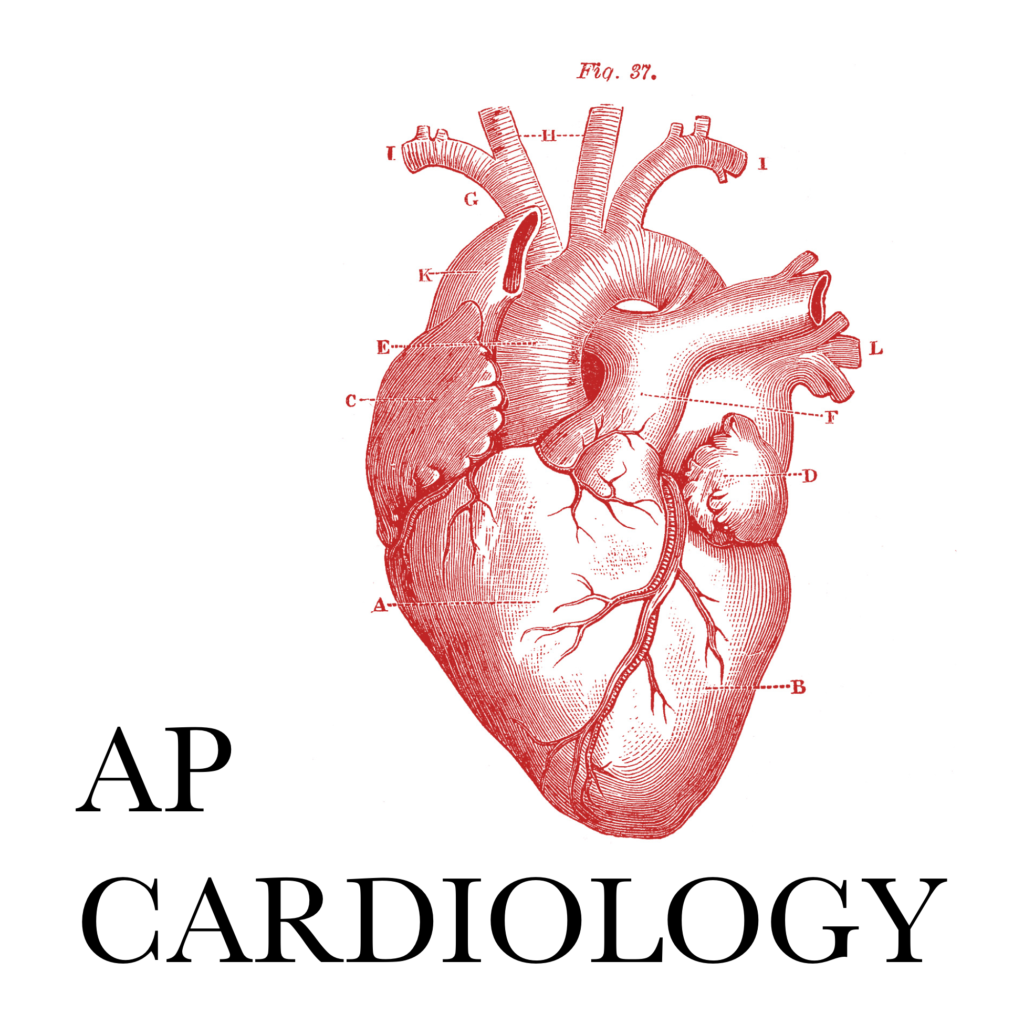Your complete guide to Cardiology: Understanding risk, prevention, and care
The Duty of Cardiology in Preventive Health and Health Providers
Cardiology is increasingly recognized for its critical function in preventative health and wellness and health services. By emphasizing aggressive techniques, cardiologists intend to decrease the occurrence of cardio illness. This technique incorporates threat assessments, way of living adjustments, and regular testings. Through these initiatives, individuals are motivated to take control of their heart wellness. The combination of technology and cooperation with other healthcare carriers elevates essential inquiries regarding the future of preventative care. What might this evolution require?

Understanding Preventative Cardiology
Comprehending preventative cardiology includes recognizing its necessary duty in minimizing cardiovascular disease danger with positive steps. This branch of medication highlights the relevance of way of living alterations, consisting of workout, stress and anxiety, and diet regimen management, to stop heart-related concerns prior to they develop. It promotes for normal health and wellness screenings and education to encourage people in making educated health choices.Preventative cardiology also encompasses the recognition of threat factors such as hypertension, diabetes, and high cholesterol, prompting people to take on much healthier routines - Cardiology care. By concentrating on prevention as opposed to response, this strategy not only boosts private health end results however also minimizes the general problem on medical care systems. Additionally, it advertises partnership among medical care areas, patients, and suppliers, promoting a holistic strategy to heart wellness. Inevitably, understanding preventative cardiology motivates a change in the direction of a proactive state of mind, focusing on long-lasting health and well-being
Threat Analysis and Monitoring
Danger assessment is crucial in identifying cardiovascular dangers that can cause major wellness issues. Efficient monitoring of these threats frequently includes carrying out way of living modification methods, such as improved diet and raised physical activity. By recognizing and dealing with these aspects, people can significantly minimize their chance of developing cardio diseases.
Recognizing Cardiovascular Risks
Although many factors contribute to cardio wellness, identifying cardio dangers is vital for effective avoidance and monitoring. Cardiovascular threat evaluation involves reviewing various elements, including household background, sex, way of living, and age routines such as smoking cigarettes and physical lack of exercise. Furthermore, health and wellness conditions like hypertension, diabetes, and high cholesterol considerably affect a person's risk profile. Medical care experts make use of tools such as danger calculators and biomarker tests to quantify these dangers and stratify clients appropriately. Early recognition makes it possible for targeted interventions, leading clients towards suitable management approaches. By acknowledging these threats, cardiologists can work together with people to create tailored plans that stress monitoring and positive treatment, inevitably minimizing the possibility of adverse cardio events.
Way Of Life Alteration Strategies
Efficient lifestyle alteration techniques play a necessary duty in handling cardiovascular health and wellness and mitigating involved threats. These methods incorporate nutritional changes, enhanced physical task, and cigarette smoking cessation. A heart-healthy diet regimen rich in fruits, vegetables, entire grains, and lean proteins can greatly decrease cholesterol levels and high blood pressure. Normal physical activity, such as cardiovascular workouts, boosts and enhances the heart circulation. Furthermore, giving up cigarette smoking minimizes the risk of heart condition and boosts overall health. Healthcare experts typically employ threat evaluation devices to customize these adjustments to specific needs properly. By integrating way of life become routine care, cardiologists can encourage patients to take charge of their heart health and wellness, eventually leading to improved outcomes and minimized healthcare prices.
Lifestyle Modifications for Heart Wellness
To keep excellent heart wellness, people should adopt a variety of lifestyle modifications that significantly reduce the possibility of cardiovascular illness. A well balanced diet abundant in fruits, veggies, whole grains, and lean proteins is vital. Minimizing hydrogenated fats, trans fats, and sodium consumption can considerably reduce cholesterol levels and high blood pressure. Routine physical activity, such as vigorous strolling or cycling for at the very least 150 minutes weekly, additionally plays a substantial duty in boosting and strengthening the heart circulation.Additionally, taking care of anxiety through strategies like mindfulness and meditation can have a favorable effect on heart health. Staying clear of cigarette products and restricting alcohol consumption even more add to a healthier cardio system. Maintaining a healthy and balanced weight is essential, as weight problems is a significant danger element for heart disease. By including these way of living adjustments, individuals can cultivate not just their heart wellness yet also their general wellness, bring about a try this site more energetic and vibrant life.
The Value of Routine Testings
In addition to way of life alterations, regular screenings play an important duty in maintaining heart wellness and avoiding cardio diseases. These analyses are significant for identifying risk aspects such as hypertension, high cholesterol, and diabetes mellitus, which can bring about serious problems if left untreated. Cardiologists advise regular analyses to monitor heart feature and find abnormalities early, permitting prompt intervention.Screenings, which may consist of blood echocardiograms, examinations, and electrocardiograms, provide essential information for customized treatment plans. This proactive approach empowers people to make enlightened choices regarding their health and wellness, boosting overall wellness. Furthermore, regular examinations promote a stronger doctor-patient relationship, encouraging open discussion regarding heart health issues.
Integrating Technology in Preventive Care
Embracing modern technology has transformed preventative care in cardiology, offering ingenious tools that improve client surveillance and interaction. Wearable devices, such as smartwatches and health and fitness trackers, enable people to monitor their heart rate, task levels, and general health and wellness metrics in real-time. These gadgets not only give instant responses however also promote data sharing with medical care service providers, permitting for prompt interventions when necessary.Additionally, telemedicine has actually become a noticeable attribute in cardiology, allowing remote examinations and follow-ups. This accessibility guarantees that people can obtain care without the barriers of travel and time restraints. Mobile wellness applications visit our website more assistance preventative actions by using individualized insights and tips for drug adherence, lifestyle modifications, and set up screenings.
Person Education and Empowerment
Empowerment via education is important in the domain name of preventative cardiology, as educated clients are most likely to participate in positive health habits. By recognizing their cardiovascular wellness, people can make educated decisions regarding way of living adjustments and adherence to treatment plans. Educational campaigns, consisting of workshops, informational handouts, and on the internet resources, serve to improve individual knowledge about danger variables such as high blood pressure, cholesterol levels, and the importance of routine exercise.Moreover, empowering people cultivates a joint strategy to wellness monitoring. When people know their conditions and the implications of their choices, they are more likely to participate in discussions with doctor, causing customized treatment methods. This collaboration not only promotes responsibility however likewise improves motivation for keeping a heart-healthy way of life (Dr Garcia). Ultimately, person education and learning is a keystone of preventative cardiology, outfitting people with the devices required to take charge of their cardiovascular health and well-being
Teaming up With Various Other Healthcare Professionals
Efficient individual education lays the groundwork for collective initiatives among healthcare professionals in the field of preventative cardiology. Cardiologists, health care physicians, nutritionists, and mental wellness experts must function in synergy to optimize individual end results. By sharing methods and understandings, these experts can create thorough treatment strategies that deal with both psychological and physical facets of heart health.Regular interdisciplinary meetings foster communication, making certain that all employee are notified about individual progression and challenges. This cooperation promotes timely treatments and changes to treatment plans, improving the performance of preventative measures.Furthermore, integrating innovation, such as shared digital health documents, enhances information accessibility and streamlines coordination efforts. This alternative method not only improves person adherence to way of life modifications yet additionally encourages people to organize their cardio health and wellness. Ultimately, cooperation among medical care experts is crucial in advertising an aggressive strategy to cardiovascular the original source disease avoidance.
Frequently Asked Concerns
What Is the Difference In Between Cardiology and General Health Care?
Cardiology concentrates on diagnosing and dealing with heart-related problems, while general healthcare incorporates a wider variety of clinical services addressing numerous wellness problems - Dr Garcia. Each plays a vital duty in preserving total wellness and well-being
How Often Should I See a Cardiologist for Precautionary Care?
The frequency of cardiologist visits for preventative treatment differs based upon specific threat aspects. Generally, annual consultations are suggested for those with present problems, while others may require much less frequent check-ups based upon overall heart health and wellness.
Can Stress Effect My Heart Health And Wellness Considerably?
Stress and anxiety can significantly affect heart health and wellness by adding to hypertension, swelling, and harmful way of living selections. People experiencing chronic stress and anxiety might be at boosted risk for cardiovascular problems, requiring reliable anxiety management approaches for far better heart health.
Exist Particular Heart Disease I Should Be Mindful Of?
People need to recognize problems like hypertension, coronary artery disease, heart failure, arrhythmias, and valvular cardiovascular disease. Recognizing these problems early can cause much better monitoring and improved general heart health and wellness outcomes.

What Are the Prices Related To Preventative Cardiology Solutions?
The costs connected with preventative cardiology solutions can vary substantially. Aspects such as location, sort of solution, and insurance policy protection influence general expenditures, making it vital for people to seek thorough details certain to their situations. Via these initiatives, patients are motivated to take control of their heart health and wellness. It supports for regular health and wellness testings and education to empower people in making enlightened wellness choices.Preventative cardiology also includes the identification of threat variables such as hypertension, diabetes, and high cholesterol, advising people to embrace healthier practices. In addition, it promotes cooperation amongst health care communities, clients, and suppliers, promoting an alternative strategy to heart wellness. Regular physical activity, such as brisk walking or cycling for at least 150 mins per week, likewise plays a substantial duty in enhancing the heart and improving circulation.Additionally, handling tension through strategies like mindfulness and meditation can have a positive effect on heart health. Cardiology specializes in diagnosing and dealing with heart-related problems, while basic wellness treatment encompasses a broader variety of clinical services dealing with different health issues.